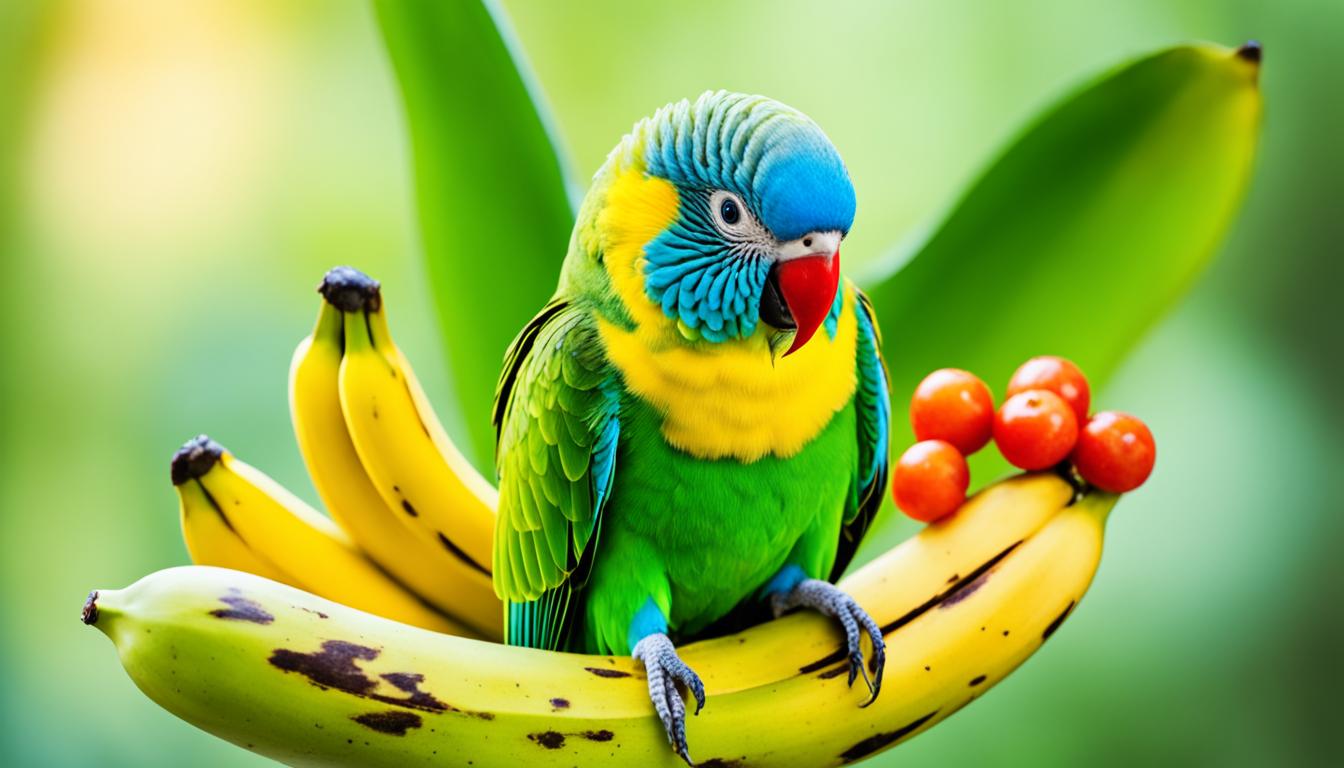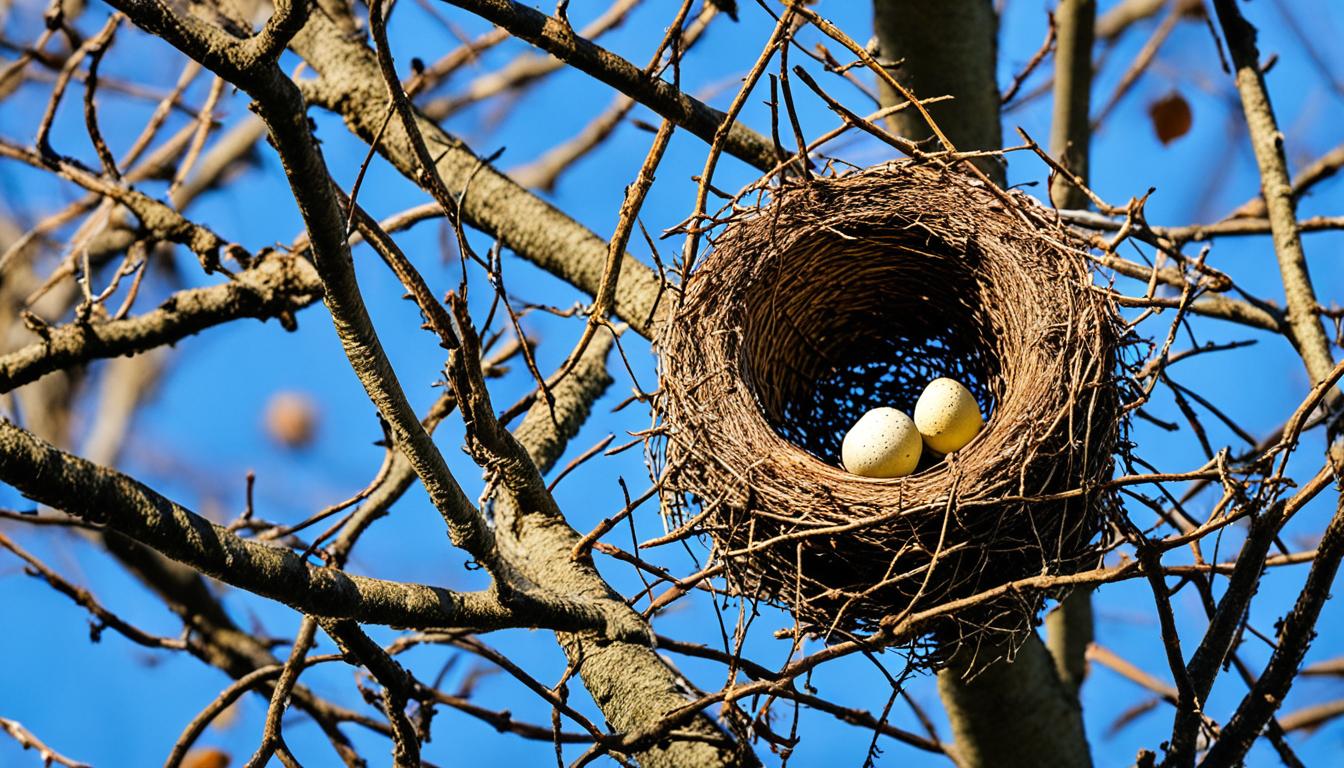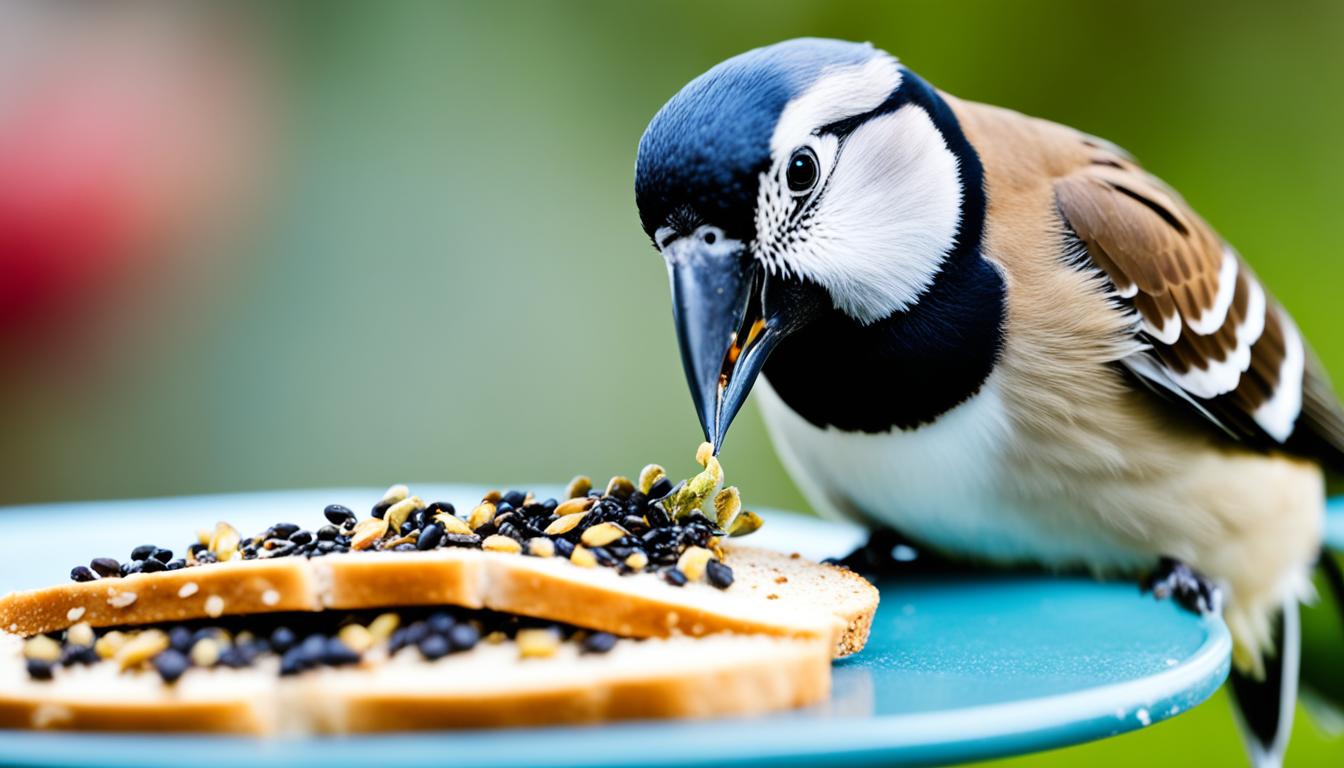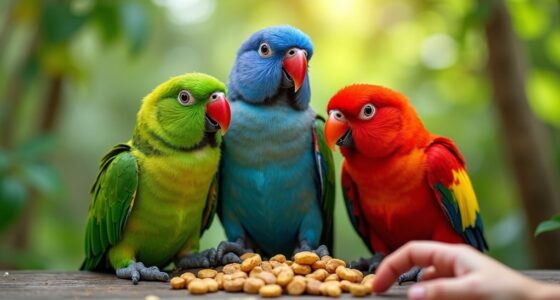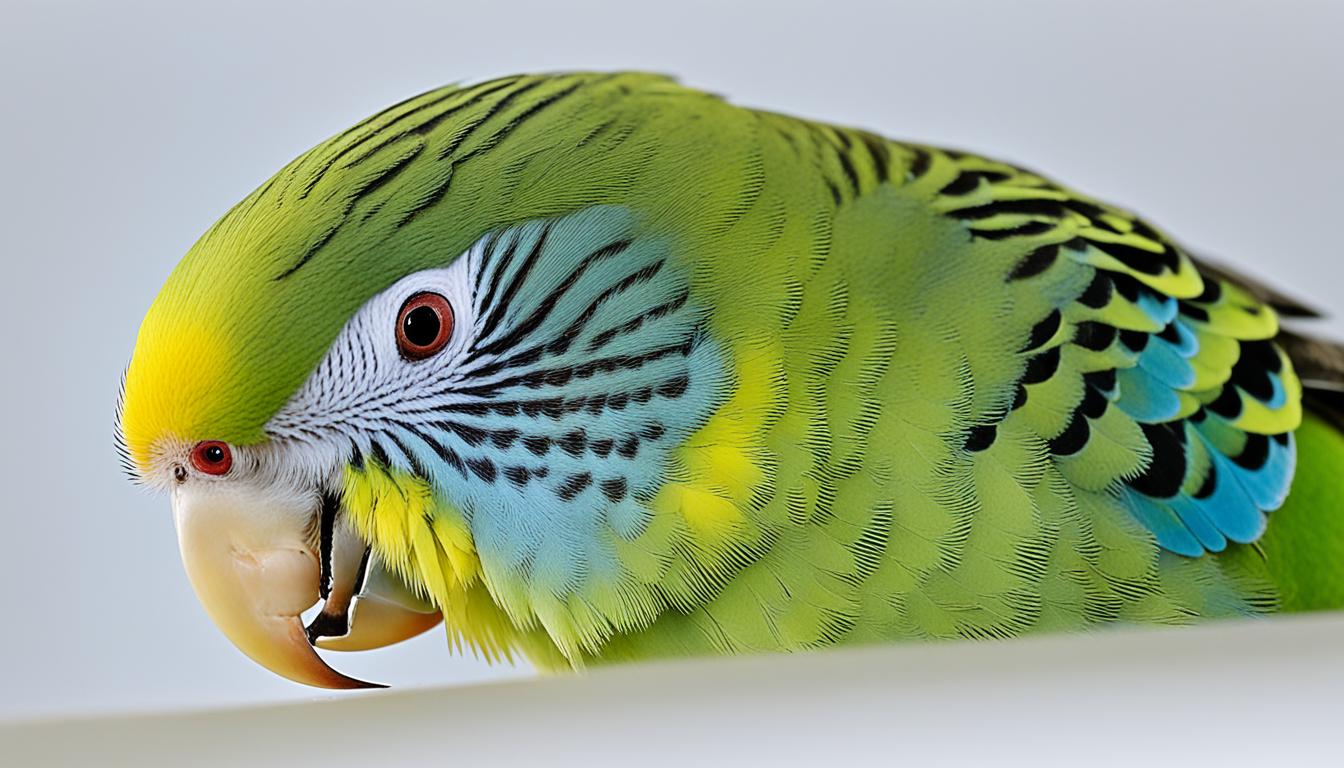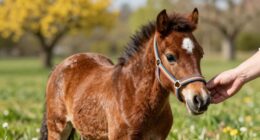Did you know that parakeets are not only cute pets but also have surprisingly diverse dietary preferences? While we typically think of them eating seeds and pellets, these small birds can also enjoy a variety of fruits, such as bananas.
Feeding parakeets bananas may seem unusual at first, but it’s important to understand how it can impact their health and well-being. In this article, we will explore the question – can parakeets eat bananas? Let’s delve into the details.
When it comes to offering bananas to parakeets, moderation is the key. Bananas are a high-calorie fruit and should be considered an occasional treat rather than a regular part of their diet. While they contain essential nutrients like vitamin B6, potassium, manganese, selenium, and fiber, excessive consumption can lead to issues like obesity, diarrhea, picky eating habits, and nutritional imbalances.
To satisfy their sweet tooth without overdoing it, small pieces of banana, with or without the peel, can be offered to parakeets two or three times a week. By maintaining a balanced diet that primarily consists of high-quality pelleted food and incorporating fresh fruits and vegetables in limited quantities, we can ensure our feathered friends receive the nutrition they need.
So, let’s explore the fascinating world of parakeet nutrition, including the benefits of bananas for these delightful birds and how to best incorporate this treat into their diet. Together, we’ll discover how to keep our parakeets healthy, happy, and well-fed.
Key Takeaways:
- Parakeets can eat bananas, but it should be given in moderation to prevent health issues.
- Offer small pieces of banana, with or without the peel, two or three times a week as an occasional treat.
- Ensure a balanced diet for parakeets, consisting of high-quality pellets, fresh fruits and vegetables, nuts, and seeds.
- Avoid overfeeding bananas to prevent obesity, diarrhea, picky eating habits, and nutritional imbalances.
- Provide a diverse diet to parakeets, including other safe fruits and vegetables like apples, blueberries, carrots, and melons.
What Can a Parakeet Eat?
A parakeet’s diet is essential for its overall health and well-being. Providing a balanced and nutritious diet is crucial to ensure that our feathered friends stay happy and energetic. Let’s take a closer look at what we can include in a parakeet’s diet to keep them in the best shape possible.
Diet Composition
When it comes to a parakeet’s diet, the majority should consist of a high-quality pelleted food. These pellets are specially formulated to provide all the essential nutrients that parakeets need to thrive. They should make up about 60-70% of their overall diet.
In addition to pellets, parakeets can enjoy a variety of fresh fruits and vegetables. These colorful additions provide essential vitamins, minerals, and fiber. Roughly 30-40% of a parakeet’s diet can be made up of these fresh produce options.
| Fruits | Vegetables |
|---|---|
| Apples | Broccoli |
| Blueberries | Cantaloupe |
| Cherries | Carrots |
| Grapes | Cucumber |
| Peaches | Dandelion greens |
| Pears | Kale |
Nuts and seeds can also be included in a parakeet’s diet, but in limited quantities. These provide healthy fats and protein. It’s important to choose unsalted options and avoid any items that may be coated in added oils or spices.
Finally, occasional treats, such as millet spray or a small piece of whole grain toast, can be given to parakeets. These treats should only make up a small portion of their diet and should not replace the essential pellets and fresh produce.
What to Avoid
While there are many safe and nutritious options for parakeets, it’s important to be aware of foods that can be toxic to them. Some foods to avoid include:
- Onions and garlic
- Rhubarb
- Avocado
- Caffeine
- Salt
- Cheese and other dairy products
- Chocolate
- High-fat foods
- Xylitol
These foods can be harmful and potentially fatal for our feathered friends, so it’s best to keep them out of their diet altogether.

By providing a well-rounded and nutritious diet for our parakeets, we can ensure that they lead happy and healthy lives. Remember to offer a variety of foods, including high-quality pellets, fresh fruits and vegetables, nuts and seeds in moderation, and occasional treats. And always keep in mind the foods that are harmful to parakeets, keeping them out of their reach. With a carefully curated diet, we can give our parakeets the nutrition they need to thrive.
Benefits of Bananas for Parakeets
Bananas offer several health benefits for parakeets. They are packed with essential nutrients that promote overall well-being and support vital bodily functions. Let’s take a closer look at the nutrients in bananas and how they positively impact your parakeet’s health:
Vitamins
Bananas are an excellent source of various vitamins that contribute to your parakeet’s overall nutrition. One key vitamin found in bananas is vitamin B6, which aids in metabolizing protein and supports the parakeet’s immune system. Vitamin B6 is crucial in defending against diseases and infections that can affect your feathered friend.
Minerals
Potassium is another essential mineral abundant in bananas. A diet with adequate potassium helps maintain healthy heart function in parakeets, ensuring their cardiac muscles work optimally. This mineral is also essential for regulating blood pressure and promoting proper kidney function in parakeets.
Additionally, bananas contain manganese and selenium, minerals that contribute to the production of enzymes involved in various bodily processes.
Fiber
Bananas are an excellent source of dietary fiber for parakeets. Fiber aids in digestion and helps prevent constipation, ensuring a healthy gastrointestinal tract. A well-functioning digestive system is crucial for your parakeet’s overall health and well-being.
Feather Quality
The nutrients found in bananas, such as vitamin B9, magnesium, and selenium, promote healthy feather growth and improve feather quality in parakeets. Feathers are essential for thermoregulation and flight, so it is essential to provide proper nutrition to maintain their condition. By including bananas in their diet, you can help maintain vibrant and healthy feathers in your parakeet.
In addition to these specific benefits, bananas are also a quick source of energy for parakeets, offering a natural boost when needed. However, it is important to offer bananas in moderation to prevent overconsumption of sugar and calories, which can lead to health issues.
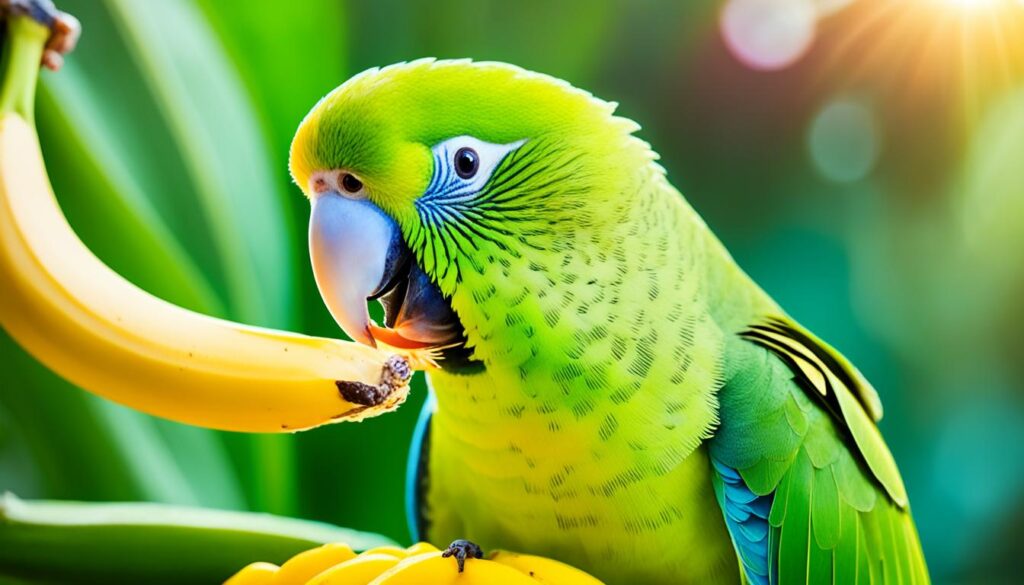
| Nutrient | Function |
|---|---|
| Vitamin B6 | Aids in protein metabolism and supports the immune system |
| Potassium | Maintains healthy heart function and regulates blood pressure |
| Manganese | Supports enzyme production and various bodily processes |
| Selenium | Plays a role in enzyme production and overall bodily functions |
| Vitamin B9 (Folate) | Promotes healthy feather growth and improves feather quality |
| Magnesium | Aids in feather health and various bodily functions |
| Fiber | Facilitates digestion and helps prevent constipation |
How to Feed Bananas to Parakeets
When it comes to feeding bananas to our feathered friends, parakeets, it’s important to ensure that we do it properly. Here are some guidelines to follow:
Serving Size: Offer small pieces of banana to your parakeet. This allows them to enjoy the fruit without overindulging. The serving size will depend on the size of your bird, but a teaspoon or two of banana per serving is generally sufficient.
With or Without the Peel: You can offer bananas to your parakeet with or without the peel. Some parakeets may enjoy nibbling on the peel, while others prefer the fruit itself. If you choose to keep the peel, it’s best to use organic bananas to eliminate any potential traces of pesticides.
Washing the Fruit: Before offering banana to your parakeet, make sure to wash it thoroughly. This removes any dirt or residue that may be present on the peel, ensuring a clean and safe snack for your bird.
Mashed Bananas: Another way to serve bananas to your parakeet is by mashing them. This creates a soft and easily consumable treat that your bird can enjoy. Just make sure the mashed bananas are fresh and free from any additives.
Remove Leftovers: It’s important to remove any uneaten banana from your parakeet’s food dish at the end of the meal. Leaving leftovers can lead to bacterial growth and potential health issues for your bird.

Remember, bananas should be given to parakeets as a treat, not as a staple part of their diet. It’s essential to provide a balanced diet that includes pellets, fresh fruits, vegetables, nuts, and seeds to ensure your parakeet receives all the necessary nutrients for optimal health.
By following these feeding guidelines, you can safely incorporate bananas into your parakeet’s diet and provide them with a delicious and nutritious treat.
Risks of Feeding Bananas to Parakeets
While bananas are generally safe for parakeets, it’s important to be aware of the potential hazards associated with feeding them too much of this fruit. Overeating bananas can lead to various risks and health issues for your feathered friend. Here are some of the main risks:
1. Obesity
Parakeets that consume an excessive amount of bananas can easily become overweight. Bananas are high in calories and can contribute to weight gain if not given in moderation. Excess weight can lead to numerous health problems, such as cardiovascular issues and joint pain.
2. Diarrhea
Feeding your parakeet too many bananas can also result in loose stools or diarrhea. The high sugar content in bananas may disrupt their digestive system and cause gastrointestinal distress. Diarrhea can lead to dehydration, weakness, and further complications if not addressed promptly.
3. Picky Eating Habits
If parakeets become accustomed to a diet primarily consisting of bananas, it can lead to picky eating habits. They may develop a preference for sugary fruits and ignore other essential foods, leading to nutritional deficiencies. Parakeets require a diverse and balanced diet to thrive.
4. Nutritional Imbalances
While bananas offer some beneficial nutrients, they do not provide a complete nutritional profile for parakeets. Relying solely on bananas as a staple food can result in deficiencies of essential vitamins, minerals, and proteins. A well-rounded diet that includes a variety of fruits, vegetables, nuts, seeds, and pellets is necessary to meet their dietary needs.
It is crucial to remember that bananas should be given as an occasional treat and not as the primary source of nutrition for your parakeet. A diverse diet ensures your parakeet receives the necessary nutrients and prevents the associated risks of overconsumption of bananas.
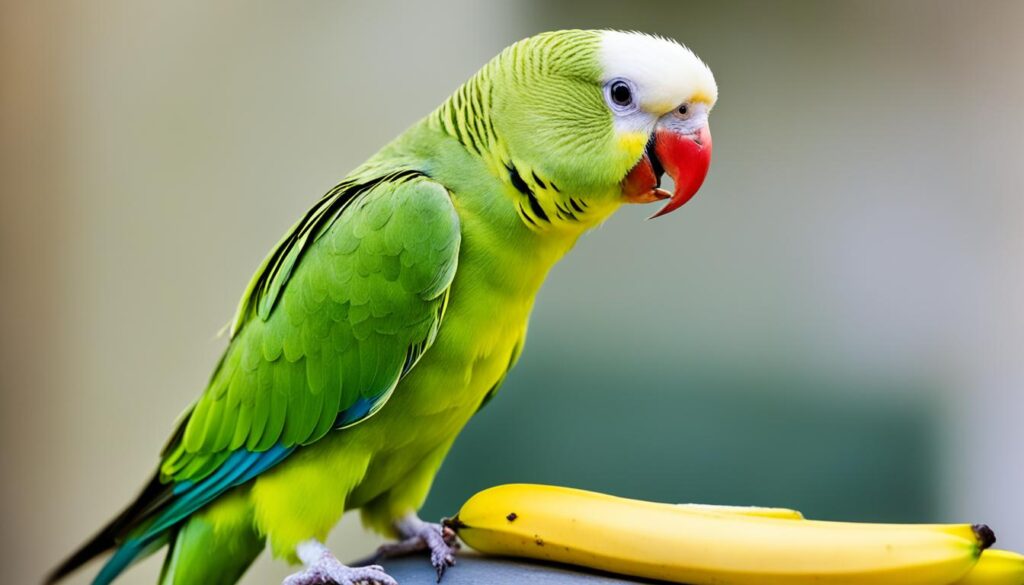
| Risks of Feeding Bananas to Parakeets | Description |
|---|---|
| Obesity | Parakeets may become overweight from consuming too many calories. |
| Diarrhea | High sugar content in bananas can lead to loose stools or diarrhea. |
| Picky Eating Habits | Parakeets may develop a preference for bananas and ignore other essential foods. |
| Nutritional Imbalances | Bananas do not provide a complete nutritional profile for parakeets. |
How to Prepare Fresh Food for Parakeets
Fresh fruits and vegetables are an essential part of a parakeet’s diet. To ensure their health and well-being, it is important to serve these foods in the right way. Below, we provide you with a step-by-step guide on how to prepare fresh food for your parakeet:
Step 1: Choose Fresh and Safe Produce
When selecting fruits and vegetables for your parakeet, opt for fresh, ripe options. Avoid using produce that is overripe or spoiled. Additionally, it is crucial to choose foods that are safe for parakeets to consume. Stick to the list of safe fruits and vegetables mentioned earlier in this article.
Step 2: Wash Thoroughly
Prior to serving fruits and vegetables to your parakeet, make sure to wash them thoroughly. This removes any dirt, pesticides, or chemicals that may be harmful to your pet. Organic options are generally recommended for fruits with edible peels, as they have a lower risk of pesticide residues.
Step 3: Introduce New Foods Gradually
Parakeets may be initially hesitant to try new foods, especially if they have been on a seed diet for a long time. To encourage their acceptance, introduce new fruits and vegetables gradually. Start by offering small pieces and gradually increase the amount over time. This approach helps prevent picky eating habits and encourages a balanced diet.
Step 4: Serve Raw and Unprocessed
Fresh fruits and vegetables should be served raw and unprocessed. Cooking or processing them can lead to nutrient loss. By serving them in their natural state, you provide your parakeet with a variety of essential vitamins, minerals, and antioxidants.
Step 5: Remove Uneaten Food
After the feeding session, promptly remove any uneaten fruits or vegetables to avoid bacterial growth. This helps maintain a clean and hygienic environment for your parakeet.
Step 6: Monitor for Allergies or Digestive Issues
While fresh fruits and vegetables are generally safe for parakeets, it is important to monitor your pet for any signs of allergies or digestive issues. If you notice any adverse reactions, such as vomiting, diarrhea, or changes in behavior, consult your avian veterinarian for guidance.
| Fresh Food Preparation Guide for Parakeets |
|---|
| Step 1: Choose Fresh and Safe Produce |
| Step 2: Wash Thoroughly |
| Step 3: Introduce New Foods Gradually |
| Step 4: Serve Raw and Unprocessed |
| Step 5: Remove Uneaten Food |
| Step 6: Monitor for Allergies or Digestive Issues |
By following these steps, you can ensure that your parakeet receives a nutritious and wholesome diet. Remember to serve a variety of fresh fruits and vegetables alongside high-quality pellets to provide a balanced nutritional profile that meets their dietary needs.

Other Foods Parakeets Can Eat
In addition to bananas, parakeets can safely enjoy a variety of other fruits and vegetables as part of their diet. These foods provide essential nutrients and contribute to the overall health and well-being of your feathered friend. Consider incorporating the following safe options into your parakeet’s meal plan:
| Fruits | Vegetables |
|---|---|
|
|
By offering a diverse range of fruits and vegetables, you can ensure that your parakeet receives a wide variety of nutrients, vitamins, and minerals. Remember to wash all produce thoroughly to remove any pesticides or dirt before serving it to your pet.
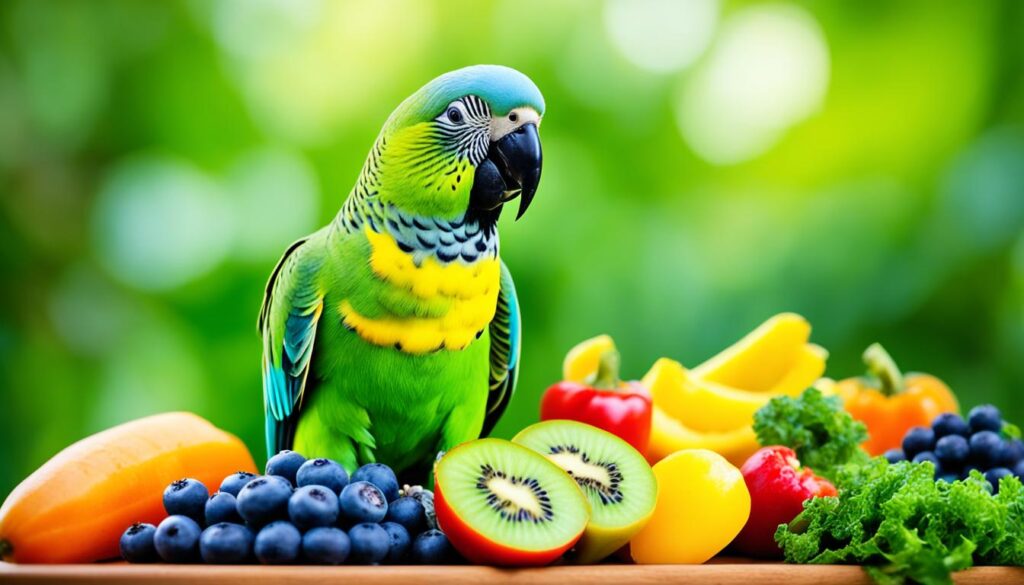
Conclusion
Feeding bananas to parakeets can be a delightful treat for these feathered friends, but it’s important to remember moderation is key. While bananas provide energy and essential nutrients like vitamin B6, potassium, and fiber, overfeeding can lead to health issues like obesity and nutritional imbalances.
To ensure a well-rounded diet, it’s essential to offer a balanced meal plan that includes pellets, fresh fruits, and vegetables, as well as nuts and seeds. Parakeets can also enjoy a variety of safe foods such as apples, blueberries, broccoli, cantaloupe, carrots, cherries, cucumber, dandelion greens, figs, grapes, kiwi, mangoes, melons, nectarines, oranges, papayas, peaches, pears, pumpkin, squash, sweet potatoes, and zucchinis.
By following these guidelines, you can provide your parakeet with a range of nutrients and flavors, ensuring their overall health and well-being. Remember, while offering an occasional banana treat can bring joy to your feathered friend, a diverse and balanced diet will keep them happy and healthy for years to come.
